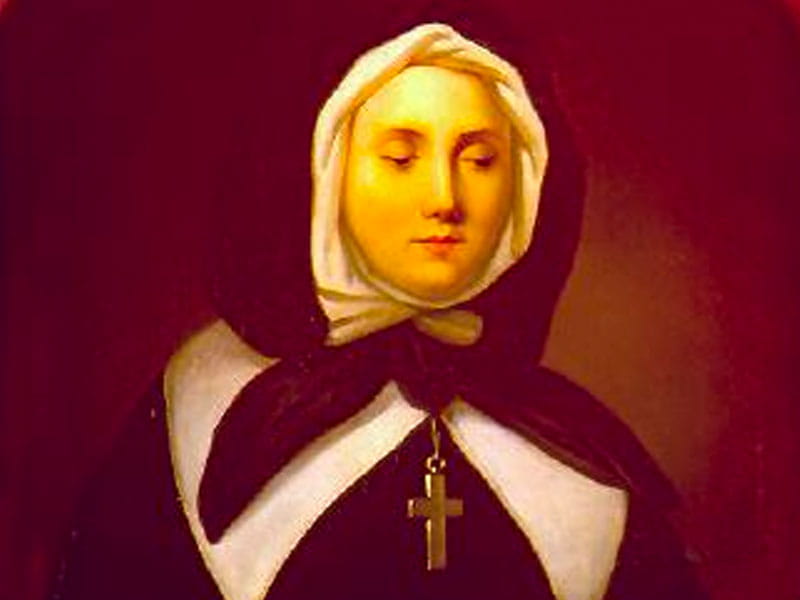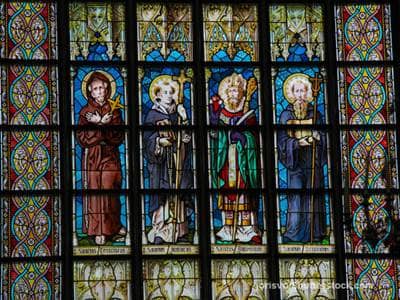St. Marguerite Bourgeoys (1620-1700)

“God closes a door and then opens a window,” people sometimes say when dealing with their own disappointment or someone else’s. That was certainly true in Marguerite’s case. Children from European as well as Native American backgrounds in seventeenth-century Canada benefited from her great zeal and unshakable trust in God’s providence.
Born the sixth of 12 children in Troyes, France, Marguerite at the age of 20 believed that she was called to religious life. Her applications to the Carmelites and Poor Clares were unsuccessful. A priest friend suggested that perhaps God had other plans for her.
In 1654, the governor of the French settlement in Canada visited his sister, an Augustinian canoness in Troyes. Marguerite belonged to a sodality connected to that convent. The governor invited her to come to Canada and start a school in Ville-Marie (eventually the city of Montreal). When she arrived, the colony numbered 200 people with a hospital and a Jesuit mission chapel.
Soon after starting a school, she realized her need for coworkers. Returning to Troyes, she recruited a friend, Catherine Crolo, and two other young women. In 1667 they added classes at their school for Indian children. A second trip to France three years later resulted in six more young women and a letter from King Louis XIV, authorizing the school. The Congregation of Notre Dame was established in 1676 but its members did not make formal religious profession until 1698 when their Rule and constitutions were approved.
Marguerite established a school for Indian girls in Montreal. At the age of 69, she walked from Montreal to Quebec in response to the bishop’s request to establish a community of her sisters in that city. By the time she died, she was referred to as the “Mother of the Colony.” Marguerite was canonized in 1982.
-
St. Bonaventure (1221-1274)
-
St. Anthony of Padua (1195-1231)
-
St. Agnes (d. 258?)
-
St. Oliver Plunkett (1629-1681)
-
Blessed Junipero Serra (1713-1784)
-
St. Gregory Grassi and Companions (d. 1900)
-
St. Maria Goretti (1890-1902)
-
Sts. John Jones and John Wall (c. 1530-1598; 1620-1679)
-
Blessed Adolph Kolping (1813-1865)
-
St. Adalbert of Prague (956-97)


